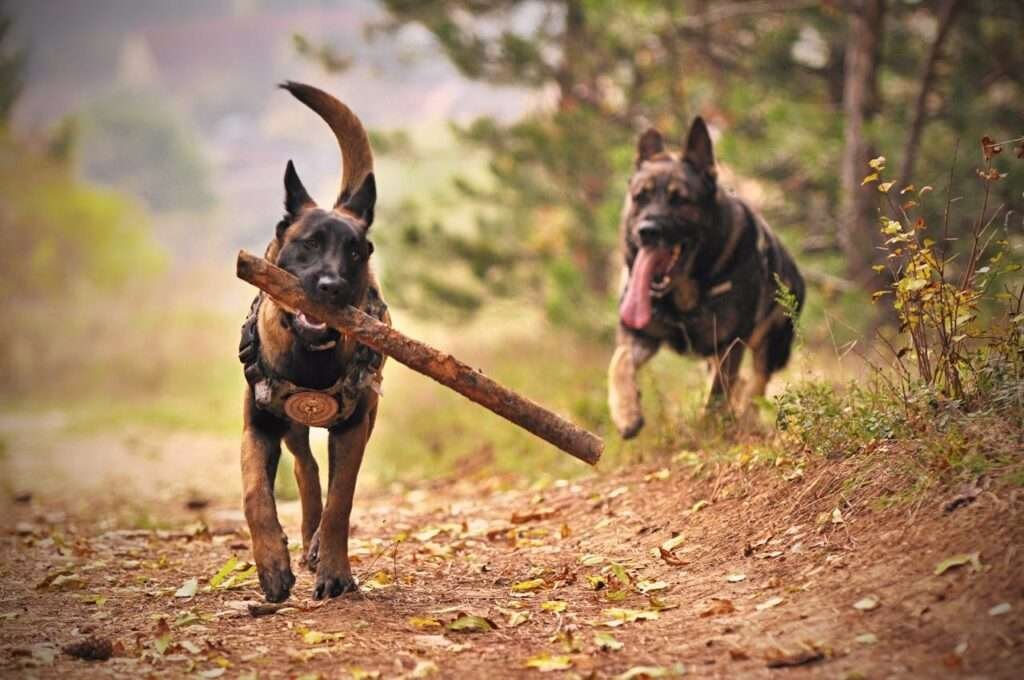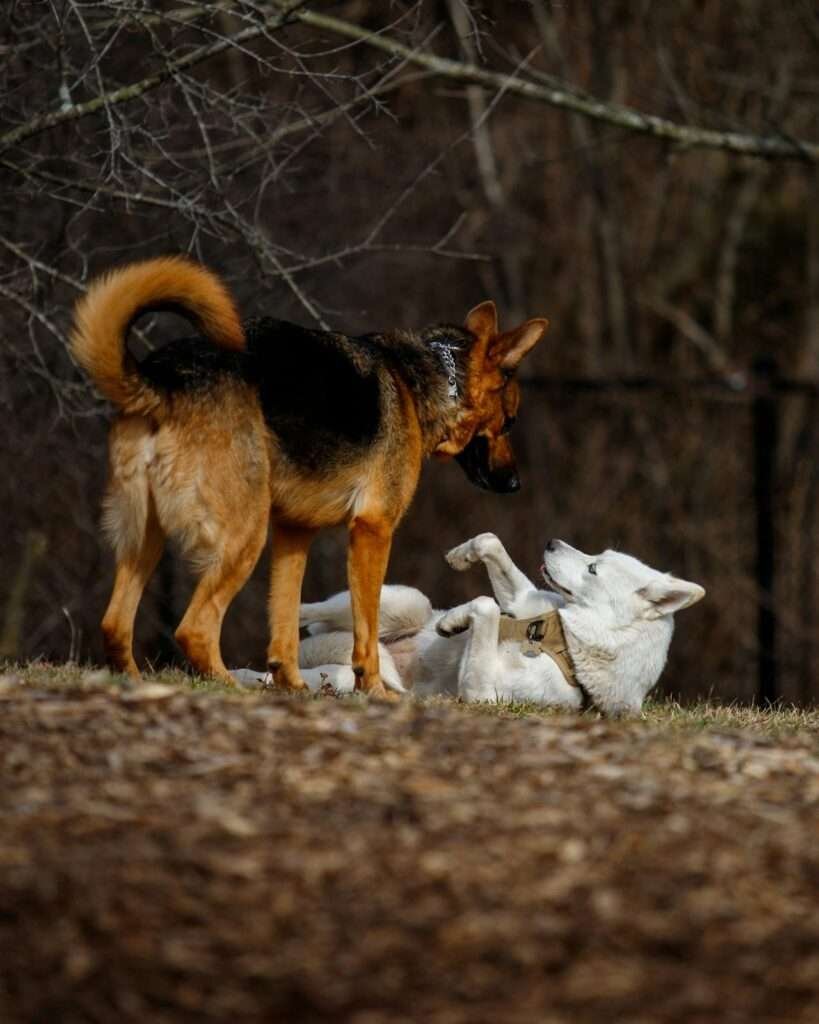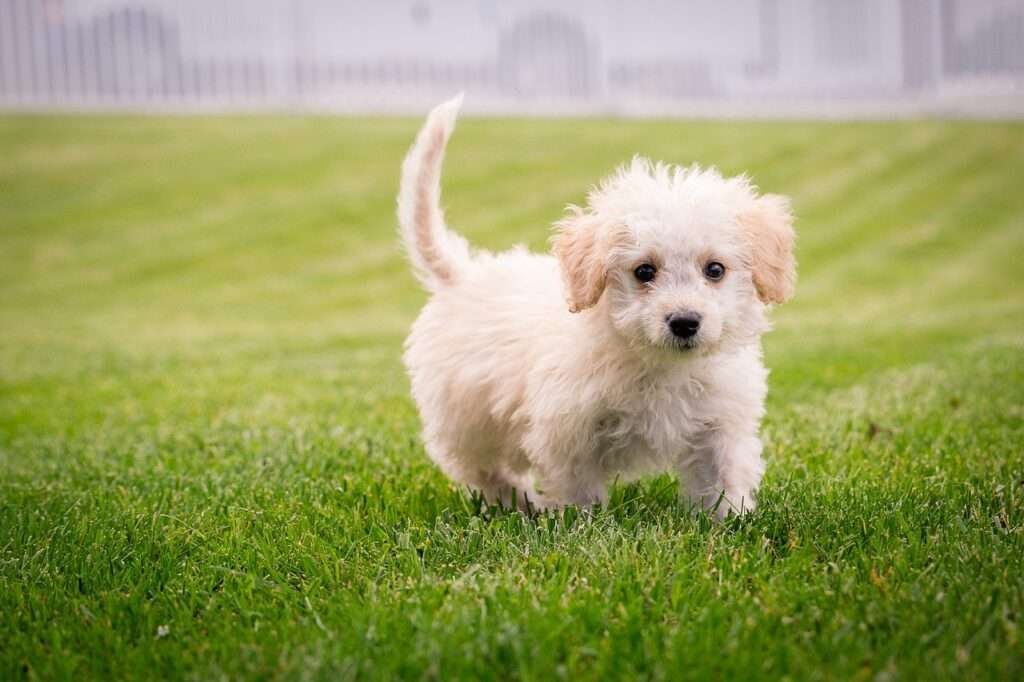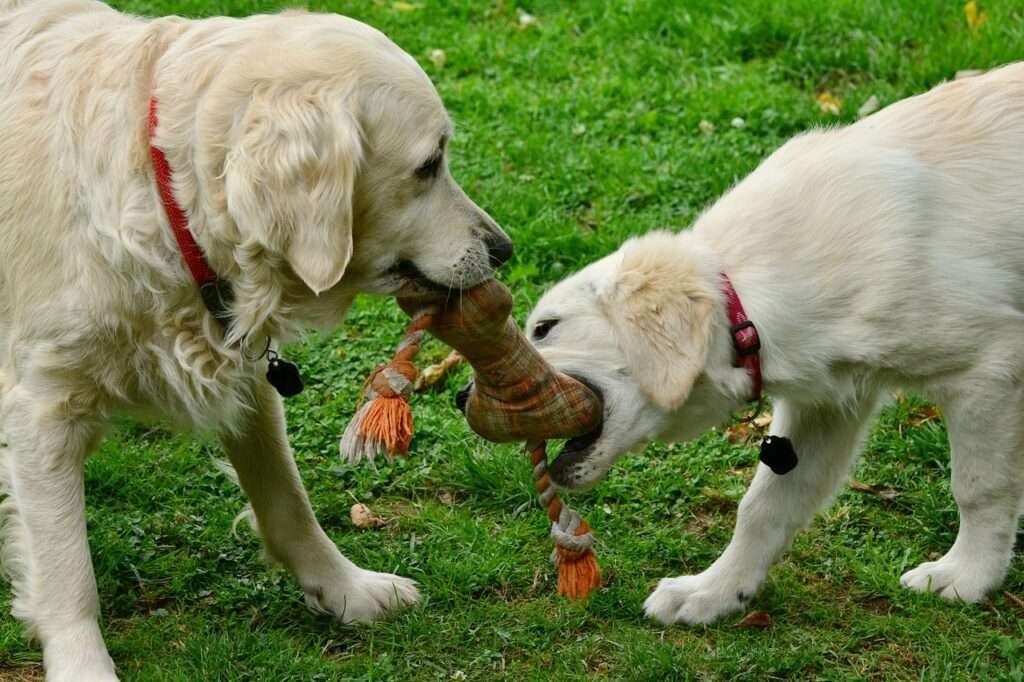The German Shepherd Dog, revered for its versatility and intelligence, is widely regarded as the best all-purpose working dog. Developed from traditional herding and farm dogs in Germany, the breed was originally developed by Captain Max von Stephanitz, who, in 1899, founded the Verein für Deutsche Schäferhunde (SV) and designated his dog, Horand von Grafrath, as the breed’s prototype.
Standing between 22 and 26 inches tall and weighing between 50 and 95 pounds, German Shepherds exhibit a strong, agile and muscular build with smooth, graceful lines. Their coats range from thick and coarse to slightly wavy, from pale gray to black and tan.
Renowned for their loyalty, confidence, and bravery, German Shepherds excel in a variety of roles, including guide dogs for the visually impaired, police and military service dogs, and search and rescue operations. They are equally well-bred as gentle family pets and watchful guardians, although they are known for their reserved behavior with strangers.
The defining characteristics of German Shepherds include their high intelligence and ability to learn commands for many tasks, combined with unwavering devotion to their loved ones. These traits, along with their energetic nature and need for regular physical and mental stimulation, make them an outstanding and cherished breed.

Table of Contents
ToggleTop 24 Behaviors German Shepherds Show
German shepherd dogs get along well with children and other pets if raised with them, but in keeping with their guarding instincts, they tend to be leery of strangers.
The breed is considered to be smart and easy to train.
Some poorly bred German shepherd dogs can be high-strung and nervous. Coupled with poor socialization and inadequate training, over guarding and aggressive behavior are risks.
1. Head tilt
Some experts believe dogs tilt their heads to get a better visual but when it comes to German shepherds, their head tilt appears to happen when they’re listening. According to Jill Goldman, Ph.D., she believes that when dogs tilt their head, it may involve them listening to frequencies and inflections in our voice or other sounds, and that the dog is trying to locate and gather information.

2. Leading the way
German shepherds are working dogs bred to herd and guard sheep. It is natural for them to be out in front to lead and protect the flock, or you, their owner. When they walk in front of you, they are doing their job and staying between you and any threats that may come along.
3. Intense staring
If you’ve ever seen your German shepherd lock onto something with their eyes, you know how intense they can stare. If you see your dog staring with intense focus, it’s time to stop and pay attention to what they’re staring at whether it be a person, animal, or object. The stare can signal that the dog is ready to bolt toward something, bite, or that they are in guarding mode. This intense stare may be the only warning they give before taking action.

4. Softly gazing at you
When your German shepherd gazes at you, they are reading your body language, watching you for clues, and communicating how much they love you. They may be waiting to see what you’re going to do next or where you’re going but their soft gaze is a gesture of adoration and their desire to be close to you.
5. Squinting
When your German shepherd squints at people or other animals they are sending a message that they’re not a threat. It can mean they are desiring attention yet at the same time, are relaxed and not going to do anything.
6. Showing the whites of their eyes
If you see your dog’s eyes open wide with the white crescent showing, that is called whale eyes. Dogs can open their eyes wide like this when they are nervous, stressed, or anxious. If you see your dog looking at someone or something with whale eyes, it means they are highly uncomfortable and you should intervene in the situation.

7. Yawning when they’re not tired
Your German shepherd may yawn when they’re sleepy but if they are suddenly yawning out of context, it can mean they are nervous, anxious, or uncomfortable. Next time you take your dog to a new place, to meet new people, or to the vet, notice if they begin yawning. If they do, you’ll soon learn to recognize that this behavior indicates they are a little stressed by something.
8. Butt scooting
If your German shepherd starts scooting their butt along the ground it could mean they have full anal glands, an infection, an itch, irritation, worms, or that want to wipe their butt. It could also indicate pain, such as with an anal fistula so it’s probably a good idea to check their butt out if it’s not normal behavior.
9. Spinning before going poop
If your dog is picky about its spot then spins before going poop, you can look to science for the reason. Apparently, dogs use the magnetic field of the earth to determine where they go. According to the study published in the Journal Frontiers in Zoology, dogs prefer to poop in a north-south axis. The study examined 37 dog breeds, 5582 urinations, and 1893 defecations before coming to this conclusion.

10. Comforting you
If your German shepherd comes over for a snuggle or offers you comfort when you’re upset, they are showing you empathy. They are experts at reading body language and moods and are known to be very in tune with their owner’s feelings.
11. Sleeping on your clothes
German shepherds are fondly called Velcro dogs for a reason. They love being close to their owners. When they can’t be close to you, if they can find your laundry or bedding, they will often lay on it until they can have the real thing, you.
12. Following you to the bathroom
German shepherds like to follow their owners everywhere, including the bathroom. It’s their way of being close to you but they are also doing their job of watching out for you or guarding you. Notice if you close the door, you’ll often find them nearby, keeping an eye out until you are done.
13. Twitching when they sleep
German shepherds can dream when they reach REM sleep, much like humans. When they begin to twitch or move their paws in their sleep, they are probably dreaming. Wouldn’t it be interesting to know what they dream about?
14. Licking you
German shepherds are very loving and often give their owners kisses. It can also be their way of grooming you or licking salt or lotion off your skin. Some biologist believes this licking behavior is an instinct left over from wolves, whose young will lick them to cause them to vomit up a meal for the pups to eat.
15. Curling up in a circle when they sleep
If your German shepherd sleeps in a donut shape also known as the fuzzy bagel, they might be cold and trying to keep their vital organs warm. They also may instinctively be protecting those same organs from predators, while they sleep.
16. Destroying furniture or their crate
When German shepherds don’t get enough exercise or interaction with their family, they can easily become anxious, frustrated, lonely, and bored. These dogs also are prone to separation anxiety and their destruction of furniture or their crate can be a sign that they need more from their owner and their needs are not being met.
17. Bringing you gifts
If your dog brings you a toy or bone, they are giving you a gift. It’s their way of showering you with attention and love or telling you they’d like to play with you.
18. Howling
When a dog howls, they are communicating or responding to a sound. They can also be trying to attract your attention because something is amiss or they need help. They may also howl when they hear a siren because siren sounds are on the same frequency.
19. Sitting on your feet
When your German shepherd sits on your feet they may be just trying to be close to you. However, they might also be sending a signal to other people and dogs that says, this human is mine, go get your own.
20. Licking lips or flicking tongue
If your German shepherd starts licking their lips or flicking their tongue for no apparent reason, you need to pay attention. This is a nervous behavior that is saying, back off, I’m uncomfortable, I’m confused, I’m worried, or I’m feeling very anxious about a situation.
21. Sighs and huffs
German shepherds are super smart and great at communicating. Just like people, they will sigh and huff when they’re tired, getting impatient, or are tired of waiting on you. It’s their way of saying, enough already.
22. Rolling in the grass
Have you caught your German shepherd rolling in the grass after a nice bath? No worries, it’s just their way of trying to replace all the pleasantness you put on their fur with the earthy stink you just washed off. The grass may also be scathing an itch and when the ground is warm, it feels good.
23. Hunched over
German shepherds are confident, bold dogs and not usually found hunched over. If you suddenly find your shepherd is hunched over, it could mean that they are trying to make themselves appear smaller, are feeling shy, are scared, or are feeling abused. However, it can also mean they are in pain so you’ll want to observe your dog for signs.
24. Eating poop
If your German shepherd eats poop, it may mean they need something in their diet. Dogs don’t eat poop because it tastes good so they may be craving undigested food in the poop, bacteria, or enzymes. It can also be behavioral. Some dogs that have been punished for pooping in the wrong place may associate pooing as something bad and they’ll eat their poop to hide it. Dogs that live in squalor are also more likely to eat poop.
We hope you’ve found some of these entertaining or interesting. Please pass them along to your German shepherd loving friends.



